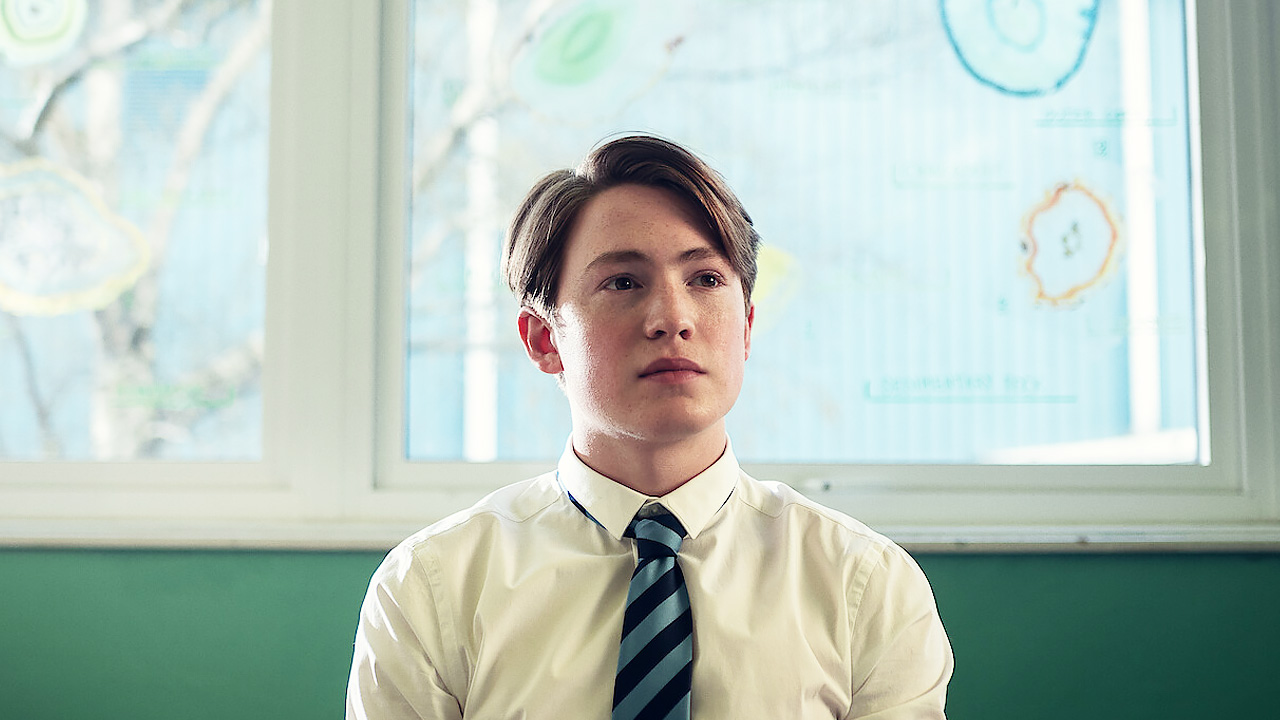Netflix’s romantic LGBT series Heartstopper is a softcore alternative to Sex Education
Is Netflix’s LGBT series a watershed moment for young adult television? Here’s the good and bad.

Is Heartstopper a watershed moment for young adult television? Lillian Crawford addresses the good and bad things about Netflix’s series, which follows LGBT teenagers.
Netflix’s new limited series Heartstopper quickly became a meme. People have responded to the series about a gay teenager’s amour de jeunesse by tweeting their own “Heartstopper moments”, i.e. film and television that they first related to as queer viewers. This trend suggests that this is a watershed moment for young adult television.
In some ways that’s a fair assessment. While Sex Education offers often frank, queer-inclusive sexual health advice, its 18 certificate asserts that it’s not appropriate for teenagers (because teenagers, famously, have no interest in sex!). Heartstopper is the softcore alternative: characters have sexualities, but they do not have or show interest in sexual activity.
This is Heartstopper’s central problem—of dealing with same-sex attraction without ever making it about sex. Central characters Nick (Kit Connor) and Charlie (Joe Locke) have to settle with making out for now. Their blooming romance is startlingly awkward, in that they can never even talk about sex—there are no erection or masturbation gags here. Instead the boys’ arousal is symbolised through some comically archaic hand-drawn stars and flowers that dance across the screen when the two make contact.
There is an easy way around this pitfall—to not make “coming out” the crux of the plot. Nothing is groundbreaking about having a character come out as gay, and it was refreshing to start the series in media res for Charlie in terms of living as an out gay teenage boy in a single-sex school. That’s not to say there isn’t validity in showing Nick bumbling through online “Am I Gay?” quizzes—a perfectly standard part of the modern process of understanding one’s sexuality—but it quickly becomes tired as the drive of an eight-episode series.
That being said, if Heartstopper gives even one teenager the tools for exploring their sexual identity, then it’s worth celebrating. Where the show outdoes Sex Education is in the friendship group that already firmly exists in the school, revealing the horrors of being queer or non-conforming in a single-sex environment. This is especially true for Elle (Yasmin Finney) who transferred to the local girls’ school after transitioning in her early teens.
Trans* characters so often have to suffer on screen, and while references are made to the bullying and treatment from some teachers at her old school, it’s rare to see a young girl undergoing a process of transition simply allowed to exist. Unlike Nick’s coming out story, Elle is simply a girl who we are told transitioned. She is always gendered correctly, and has a loving friendship group. What should be de rigueur is moving to see treated so casually here, especially in the current climate of transphobic hysteria.
Finney is one of the few actors in Heartstopper who puts in an excellent performance. Joe Locke and Kit Connor do a fine job as the lead couple, although much of the supporting cast are actively bad. This is partly due to sloppy functional dialogue from Alice Oseman, upon whose webcomic and graphic novel the series is based. What might work in those formats sadly often translates poorly to the script.
These are necessary criticisms that must be acknowledged and there’s a lot to learn from the show’s mistakes. It would be nice to see a follow-up series once Nick has come out to his mother, played in a sweet cameo by Olivia Coleman. Netflix might be able to get away with the show’s sexlessness at this stage in their relationship, but it would be laughably implausible at the next.























